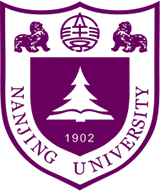Page History: Yang Yu @ NJUCS
Compare Page Revisions
Page Revision: 2012/02/04 21:46
 | 
Yang Yu (Y. Yu)
Can be pronounced as "young you"
Ph.D., Assistant Researcher
LAMDA Group, Department of Computer Science, Nanjing University
Office: 919, Computer Science Building, Xianlin Campus
email: yuy@nju.edu.cn
(alternatives: yuy@lamda.nju.edu.cn, eyounx@gmail.com) |   |
I received my Ph.D. degree in Computer Science from Nanjing University in 2011 (supervisor Prof.
Zhi-Hua Zhou), and then joined the Department of Computer Science and Technology of Nanjing University as an assistant researcher in 2011.
I am interested in artificial intelligence, particularly, machine learning, evolutionary computation and robotics. I have published papers in international conferences (e.g. IJCAI) and journals (e.g. Artificial Intelligence), and won several awards such as Grand Champion (with other LAMDA members) of PAKDD'06 Data Mining Competition, the best paper award of PAKDD'08, the best theory paper award of GECCO'11, and China Computer Federation Excellent Doctoral Dissertation Award in 2011.
(
Detailed CV)
Research
I am interested
artificial intelligence including subfields of
machine learning,
evolutionary computation and
robotics, especially,
Selected work: (
full publication list)
- General approaches to running time analysis of metaheuristic optimization algorithms: (with Chao Qian and Zhi-Hua Zhou)
The running time, or the computational complexity, of evolutionary algorithms and other metaheuristic algorithms is one of the most important theoretical issue to understand these algorithms. We developed a convergence-based approach (PDF-aij08) that can be applied to obtain running time bounds of a large range of metaheuristic algorithms. For sophisticated metaheuristic algorithms, it is usually hard to have a fine analysis. Thus we developed the switch analysis (tr11|PDF-ppsn10) that can lead to a much tighter analysis.
- Approximation ability of evolutionary optimization: (with Xin Yao and Zhi-Hua Zhou)
Evolutionary algorithms are usually used to obtain good-enough solutions rather than optimal solutions in practice. We developed the SEIP framework (PDF-aij12) to characterize the approximation ability of evolutionary algorithms, and showed that evolutionary algorithms can achieve the currently best-achievable approximation ratio for the k-set cover problem, which also reveals the advantage of evolutionary algorithms over the well known greedy algorithm.
- The roll of diversity in ensemble learning (with Yu-Feng Li and Zhi-Hua Zhou)
Ensemble learning is a machine learning paradigm that achieves the state-of-the-art performance. Diversity was believed to be a key to a good performance of an ensemble approach, which, however, only provides heuristic ideas for the existing ensemble approaches. By the diversity regularized machine (PDF-ijcai11), we show that diversity plays a role of regularization as in popular statistical learning approaches.
(
My Goolge Scholar Citations)
Recent Professional Activities
Teaching Asistant
- Introduction to Data Mining. (for undergraduate students. Spring, 2012) Teaching Assistant Page
- Data mining. (for graduate students. Fall, 2007) Teaching Assistant Page
- Algorithm Design and Analysis. (for undergraduate students. Fall, 2005)
Mail: National Key Laboratory for Novel Software Technology, Nanjing University, Xianlin Campus Mailbox 603, 163 Xianlin Avenue, Qixia District, Nanjing 210046, China